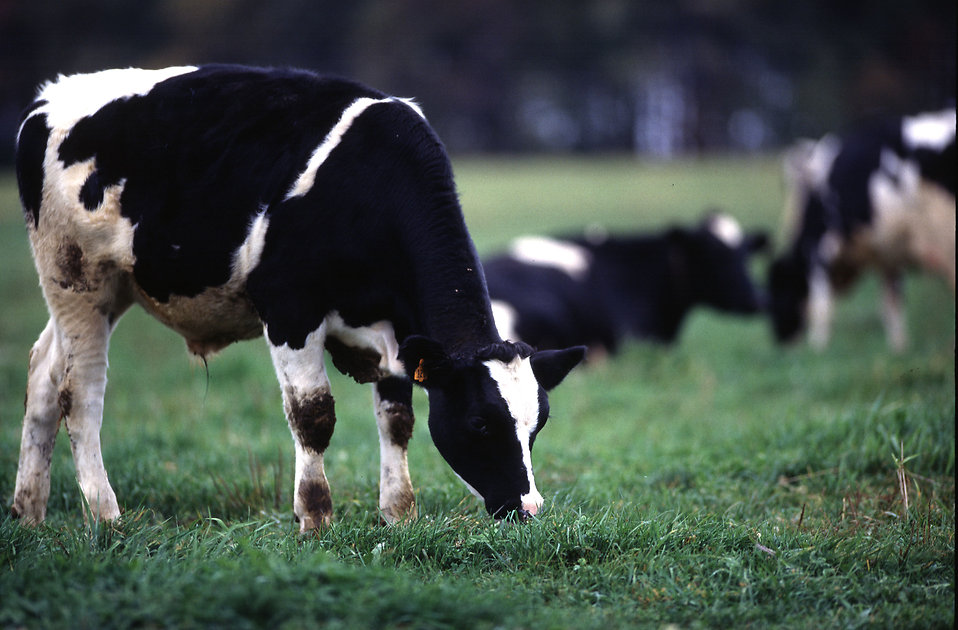In January of this year, the Agri-Mark Dairy Cooperative, which represents 1,000 milk farmers spread across the Northeast, lost another farmer to suicide. The loss was harrowing; that farmer was the third within the cooperative who’d committed suicide in the past three years.
The risk of dairy farmer suicides has become a matter of such gravity and concern in recent months that Agri-Mark has begun to mail suicide prevention letters out with milk checks it sends to farmers twice a month. These letters contained state-by-state resources for farmers to receive mental health services, the number of the National Suicide Prevention Lifeline, and the rather grim forecasts for 2018’s milk prices to warn farmers for what lies ahead.
Videos by VICE
It’s now the fourth straight year of farm milk prices dipping below production costs for most farm families, placing farmers in positions of such financial precarity and emotional duress that they sometimes feel they have no choice but to take their own lives. This problem is due, in part, to oversaturation of the milk market both nationally and globally, resulting in production costs that far exceed how much farmers are paid for their milk. As the Associated Press explained, it’s a situation that guarantees that farmers can’t turn a profit.
“Farm families are incredibly resilient, but some members may want to take advantage of helpful programs where they can talk with experts about work and financial stress, depression and anxiety, grief counseling, substance abuse and family relationship issues,” the letter reads. The letter also adds that the cooperative is working on implementing its own free member assistance program.
As NPR reported late last month, for some members of the cooperative, seeing this letter was triggering. They worried that the letter’s abject hopelessness would compound anxiety rather than offering a path forward. “It could throw [some farmers] over the edge,” Will Rogers, a 55-year-old farmer who lives in Warren, Mass., told NPR. “It was so ‘doom and gloom,’ [farmers] might think ‘I might as well just check out, there’s no point going on.’”
Agri-Mark decided to mail a list of hotlines per a directive from the cooperative’s Board of Directors, Doug DiMento, the cooperative’s Director of Corporate Communications, clarified to MUNCHIES over email on Tuesday. Though he understands such criticisms, he feels that the letter was a necessary precautionary measure.
“As dairy farmers themselves, [the board members] know the stress level is very high on farms,” DiMento wrote to MUNCHIES. “The Board wanted to be proactive on the issue before another tragedy occurred.”
DiMento explained he feels it’s better to address this issue directly so it doesn’t turn into an epidemic.
“We received many more positive comments than negative comments from members,” Doug DiMento wrote MUNCHIES over email on Tuesday. “We hope this gets the conversation started among all US dairy farmers so we can help prevent any further tragedies.”
It’s a difficult conversation, he added. But it needs to start somewhere.
More
From VICE
-

John Carl D'Annibale/Albany Times Union/Getty Images -

The Chengdu Snow Village project in Sichuan, China. (photo: Baidu) -

Kevin Witte -

CSA Images/Getty Images
